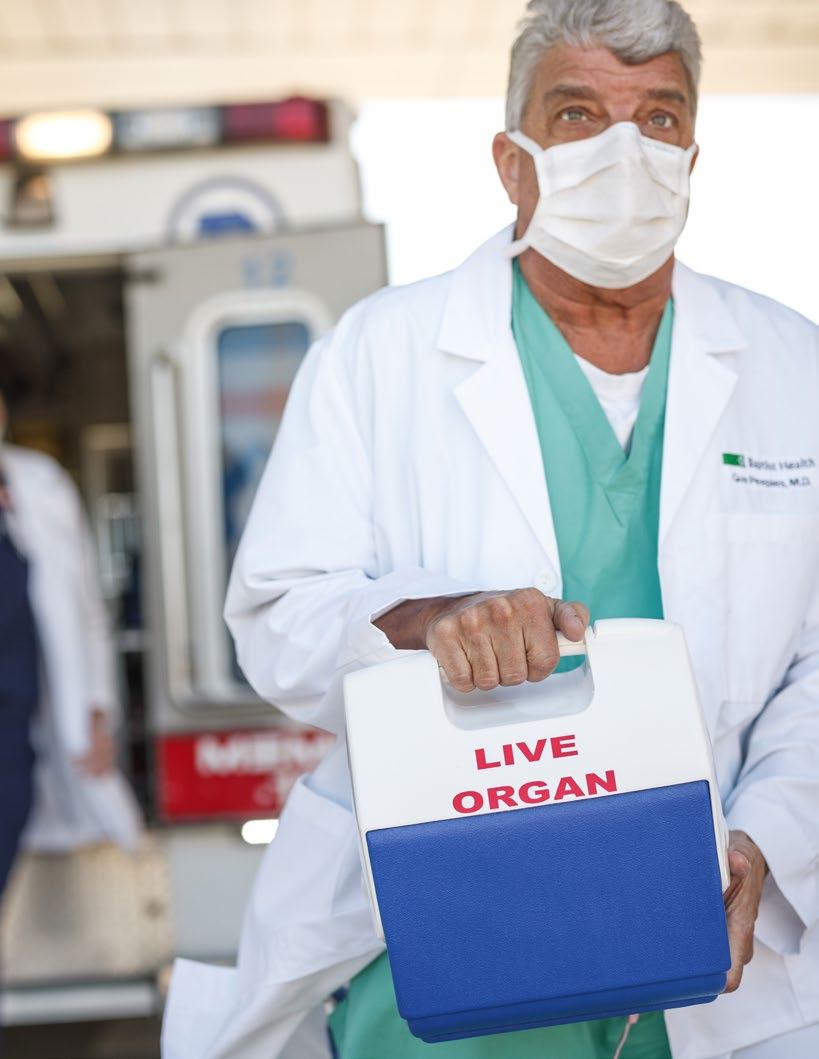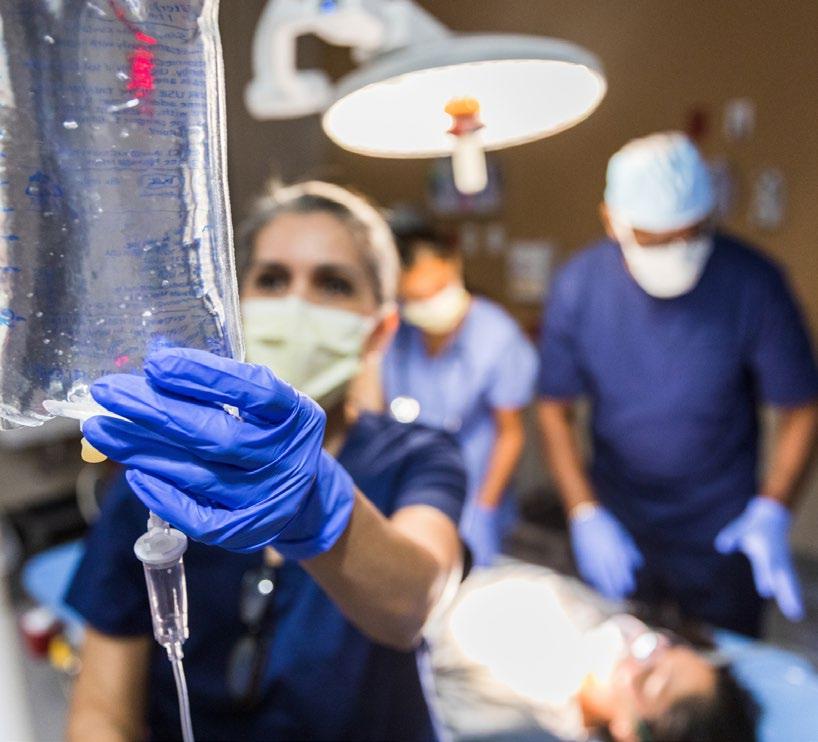
2 minute read
Access
Attracting New Customers and Providing an Exceptional Experience
Command Center Helping 'No Patient Wait for Care'
Baptist Health is striving more than ever to provide timely, safe, and efficient medical care to patients from across the state –– without subjecting them to long and unnecessary wait times.
A major component of this in 2023 was ensuring that all patients receive the right care they need, when they need it, and in the right locations that can provide that specific care. This process and commitment is not only critical for our patients’ health and well-being but also for the overall effectiveness of the health care system.
Reducing patient wait times to receive emergency care was a key objective due to the fact that delayed care can worsen a patient’s condition, leading to complications or more severe health issues.

In 2023, the Baptist Health Command Center has been able to increase inpatient admissions, decrease diversion or delay use by 10% over 2022, improve the median acute transfer acceptance turnaround time, improve acceptance of emergency department transfers in less than five minutes, and reduce the number of patients transferred to other locations outside of the system due to capability and capacity.
This year, the Baptist Health Command Center has improved communication and coordination among various hospital departments and staff. The Command Center is the initial point of access for all patients choosing Baptist Health as a place to be transferred to. The staff facilitate the sharing of information and real-time updates, ensuring that everyone is on the same page.
Another process within the Command Center called “level loading” aims to distribute patients more evenly across the system, which helps optimize the use of resources such as medical staff, hospital beds, and equipment –– all while helping Baptist Health avoid diversion, or rerouting of patients.
The Command Center currently tracks emergency department diversion metrics in real-time to help play a key role in working to keep the hospitals off diversion. Baptist Health has developed a process that allows for immediate text messages when certain thresholds of diversion metrics are met to help drive action based on the need.
For example, when Baptist Health reaches a certain threshold of patients waiting for beds in the emergency department, an automated alert goes out to select staff –– who have specific actions that each is responsible for ––to help move patients so that we can remain off diversion.
Advanced software now replaces multiple phone calls, with a single unified message that goes to all care providers. This allows Baptist Health to provide faster care and see reduced treatment times that ultimately improve the lives of patients.
The monitoring tools provide real-time data on patient flow, bed availability, staff allocation, and equipment utilization. This information enables hospital staff to make informed decisions quickly and address barriers.
Predictive analytics allow Baptist Health to forecast patient influx, future barriers, and resource demands. While not directly responsible for staffing, the Command Center can proactively adjust staffing levels and resource allocation using the Central Staffing office.
Over the past year, the Command Center has also been involved in patient care and has had a profound impact on several diseases.
Command Center nurses look to identify potential cases with suspected sepsis by discussing patient care and clinical signs of the patient. They then review the sepsis checklist with the referring hospital and request the transferring facility consider initiating sepsis guidelines while preparing for transport. Baptist Health provides similar guidance for other time-sensitive emergencies like stroke and cardiac patients.
In 2023, the Command Center initiated a process that allows communication specialists within to collaborate with and take on duties once held by case management teams in Little Rock and North Little Rock. This new process takes the logistics and transport coordination of patients leaving the hospital by ambulance.
Communication specialists work directly with the local EMS service to prioritize and coordinate transfers based on the current need of the system when it comes to emergency department admissions.
Baptist Health continually looks at stateof-the-art technology and infrastructure to ensure that it is equipped with the latest communication systems, data analytics tools, monitoring equipment, and backup power sources –– all for the benefit of our patients.









